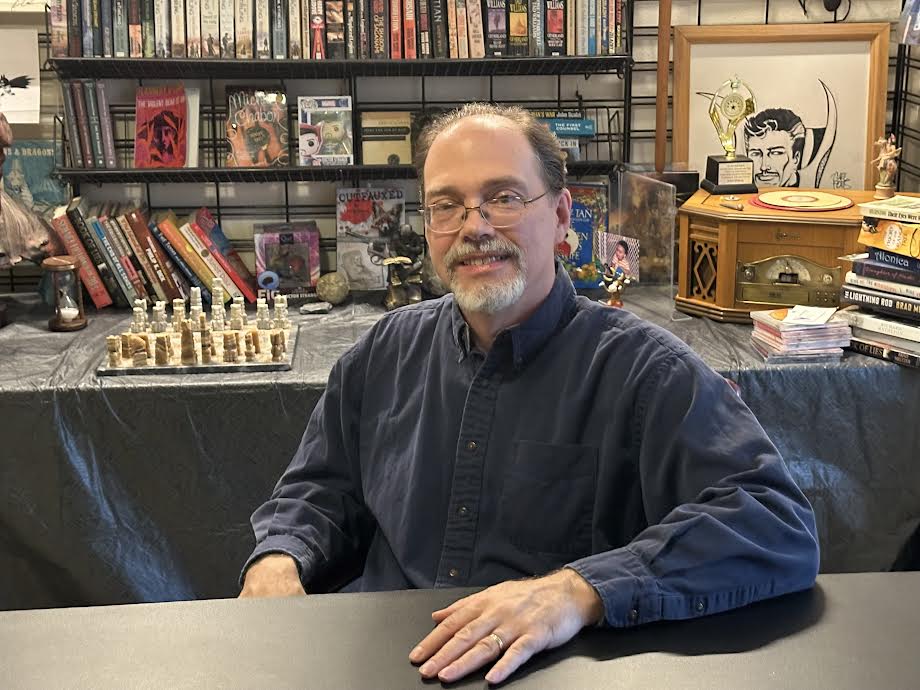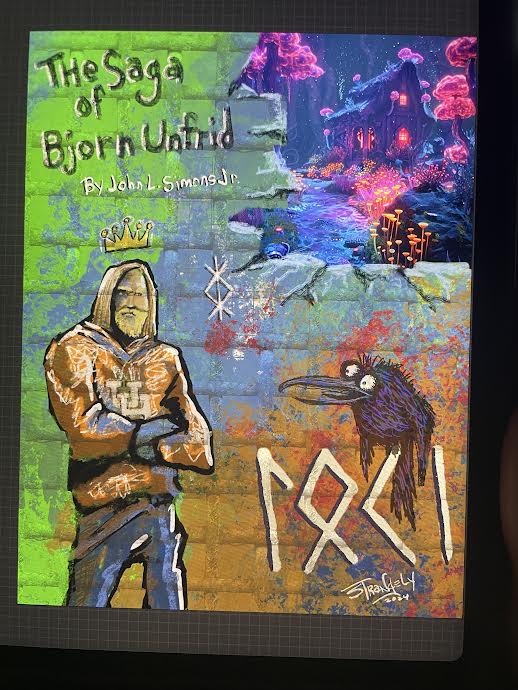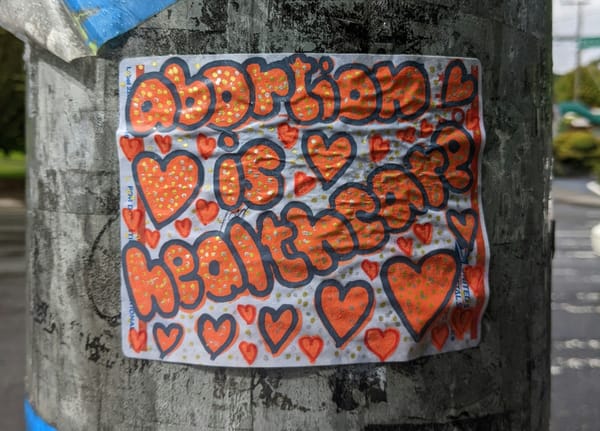Comicpalooza Founder John Simons Returns As An Author

John Simons is the man who put Houston back on the comic convention map with Comicpalooza until he stepped away in 2018. Now, he’s back as an honored guest thanks to his new career as a fantasy and horror novelist. He’ll appear at Comicpalooza this weekend, hosting a panel on getting kids to read and spreading the word of his new literary career on the vendor floor the rest of the time.
“People who just kind of know me by the famous things I’ve done, are kind of surprised by the other things I actually do,” says Simons. “My first job ever was teaching martial arts, then I taught English in France. It’s not what you expect from a guy who owned a comic store for sixteen years. I’ve always written. When I got into the store, it sort of ended my writing. I was just too busy opening boxes.”
His second and latest novel is The Saga of Bjorn Unfrid (available on Amazon), a bizarre but excellent coming of age story about a young man with magical powers moving from Toronto to attend the University of Houston in 1985. Bjorn is a solemn Norseman from an organized crime family and believes that his Viking ancestors can fly. He himself sees into the spirit realm, a gift and a curse that overwhelms him in his hot new home.

Simons has a keen gift for engaging characters. Unfrid has a slightly alien air about the way he navigates his strange new home, much to the discomfort of his typical college frat boy roommate Kev. Unfrid thinks nothing of going to a Halloween party dressed as Madonna while still keeping his long blond beard and is as equally home as he is talking to Native Canadian protective deities as he is to confusing his normie co-eds.
“I used to run D&D campaigns for customers at Midnight,” he says. “Other stores pushed Magic [the Gathering] because it made for quick sells, but I liked telling stories. D&D players are famous for not doing what you want them to, so I invested all my energy in these elaborate NPCs [non-playable characters] to interact with. I didn’t realize I was practicing to be a novelist.”
Simons ran Midnight Comics in Houston before launching the first Comicpalooza in 2008. It started out small, but quickly grew into an annual three-day event that encompassed much of the massive George R. Brown Convention Center.
For years, Houston had been a dead spot in the convention market thanks to the infamous “Con of Wrath” in 1982 where a massive Star Trek event fell apart due to mismanagement. Simons is a major reason that the city reclaimed its spot as a place where the best of geekdom make an appearance.
One of the things that always made Comicpalooza stand out from its peers was its literary track. Simons jokes that he had accidentally created the largest literary convention in the state because of all the authors that showed up. That tradition of celebrating authors continues to this day.
“Having the creator of Comicpalooza, John Simons, attend as a guest panelist is an absolute honor, especially as part of the literary track,” says Aimée McCurtain, Chief Strategy Officer for Comicpalooza and Vice President of Enterprise Strategy for Houston First Corporation. “Comicpalooza has a wide breadth of content compared to other cons, and that concept started with him. The literary track is one example where extensive programming has been developed to intrigue, inspire, and entertain readers and writers both. We’ve tried to carry on that legacy and having him attend as a panelist feels like a welcomed, full-circle moment.”
Simons’s literary instincts have served him well if Saga of Bjorn Unfrid is any indication. The novel mixes quirky fish-out-of-water tropes with a deep look at Norse mythology and Ojibwe Native traditions. The result is a delightfully fun read, even once the ghosts and weird spirits start causing problems. Simons hopes to launch not only his own career, but an entire Houston imprint of speculative fiction stories. Despite leaving behind con organizing six years ago, he can’t stop dreaming of building bigger things.
“After I sold Comicpalooza, I finally had time to write,” he says. “I realized I was finally a novelist. It wasn’t just plot devices. Now I could write full characters. It leads to all kinds of stuff when you have them made well. [The convention] was an incubator for me.”






